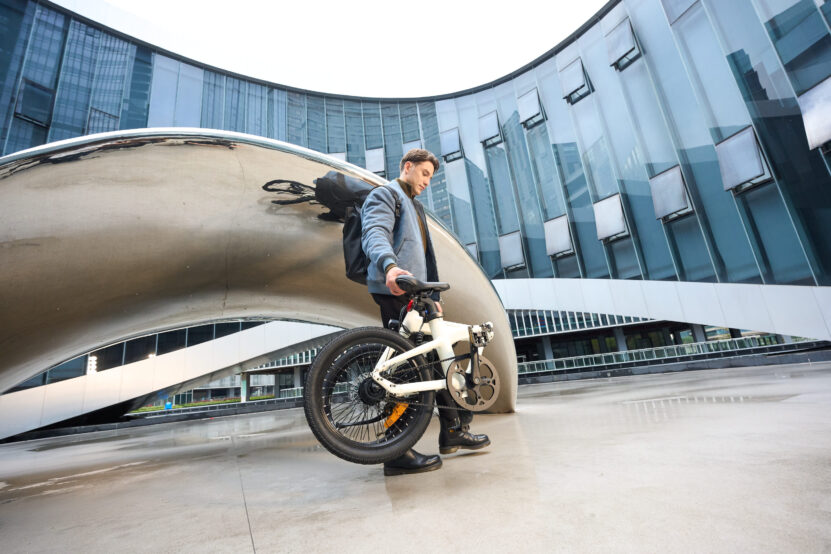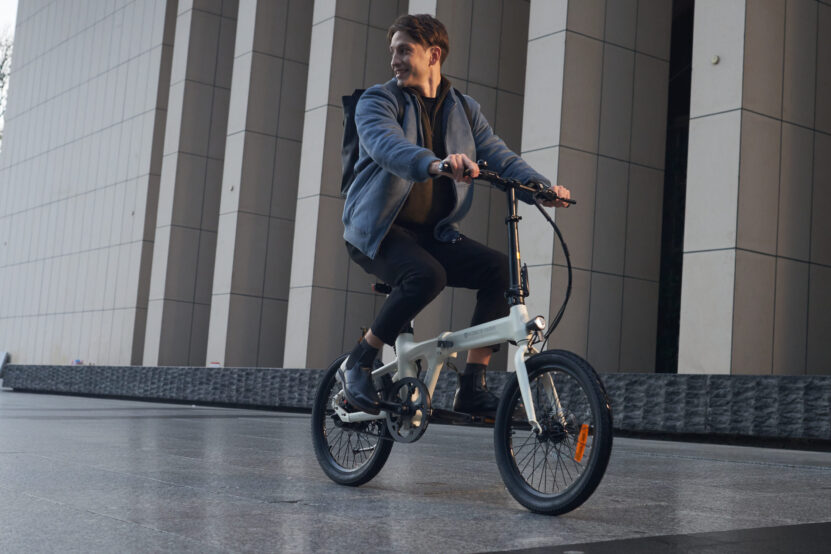In the heart of bustling cities, a quiet revolution is underway. Amidst the roar of engines and the hustle of daily life, more and more urbanites are turning to a greener, healthier way to navigate their concrete jungles. The hero of this movement? The electric bike.
In this article, you will learn:
- How electric bicycles are transforming urban commutes with their environmental benefits.
- The health and lifestyle perks of choosing an electric bike over a car.
- The economic advantages of electric bikes for both individuals and urban economies.
Let’s begin.
The Rise of Electric Bikes in Urban Landscapes

Urban areas facing congestion, pollution, and limited space are witnessing a shift towards electric bikes for commuting. Once novel, these bikes have become ubiquitous in cities, adeptly navigating through traffic and offering a practical solution to multiple urban challenges.
Why Are Electric Bicycles Becoming so Popular?
- Convenience and Accessibility: Unlike cars that require parking spaces and can get stuck in traffic, electric bicycles offer a nimble alternative. They’re easy to park, can navigate through tighter spaces, and are less affected by congestion.
- Environmental Friendliness: Electric bicycles produce zero emissions at the point of use. They represent a significant step towards reducing urban pollution and carbon footprints.
- Adaptability to Urban Environments: Many cities are adapting to this trend by adding bike lanes and parking racks, making it easier and safer to commute by electric bike.
A Contrast with Traditional Commuting Modes
Electric bikes combine personal mobility with environmental benefits, offering a fast, eco-friendly, and enjoyable riding experience, surpassing cars and public transport.
For urban commuters seeking both modern technology and classic comfort, the Adoebike represents a revolution in folding e-bikes, offering a perfect blend of geometrically designed comfort and advanced performance.
Environmental Impact: Electric Bikes vs. Cars

In the battle against urban pollution and climate change, electric bikes emerge as a clear winner over cars. Their environmental benefits are not just theoretical but tangible and significant.
- Reduced Emissions: Electric bikes emit no pollutants while in use. In contrast, even the most efficient cars release carbon dioxide and other harmful emissions. By choosing an electric bike over a car, city residents can significantly reduce their carbon footprint.
- Energy Efficiency: Electric bikes are remarkably energy-efficient. They require far less energy to operate than cars, making them a sustainable choice in an era of dwindling natural resources.
- Sustainable Manufacturing and Maintenance: The production and maintenance of electric bikes have a lower environmental impact compared to cars. They require fewer resources to build and maintain, adding another layer to their eco-friendly status.
The Broader Ecological Perspective
When considering the entire lifecycle of transportation options, electric bikes stand out for their minimal ecological impact. From manufacturing to end-of-life disposal, they leave a smaller environmental footprint than cars. This makes them a key player in the quest for sustainable urban living.
Health and Lifestyle Benefits

Switching to an electric bike for daily commuting isn’t just a win for the environment; it’s a win for personal health and well-being.
- Boost to Physical Health: While electric bikes do assist with pedaling, they still provide a good workout. They encourage more frequent and longer rides, leading to improved cardiovascular health, muscle strength, and endurance.
- Mental Well-being and Stress Reduction: Riding an electric bike can be a stress-relieving experience. The combination of physical exercise, outdoor exposure, and the joy of riding can significantly enhance mental well-being.
- Enhanced Social Interaction and Community Building: Electric bikes can foster a sense of community among riders. They provide an opportunity to engage with fellow commuters and participate in group rides, enhancing social connections.
A Lifestyle Shift Towards More Active Urban Living
The adoption of electric bikes represents a broader shift in urban lifestyles. They encourage a more active, engaged, and environmentally conscious way of living, aligning well with contemporary values around health and sustainability.
Economic Advantages

Electric bikes are environmentally friendly and economically savvy. The cost-benefit analysis of electric bikes compared to cars reveals a clear financial advantage, both for individuals and for urban economies as a whole.
- Lower Operating Costs: Charging an electric bike is much cheaper than fueling a car, and it requires less maintenance, saving significant costs over time.
- Decreased Need for Expensive Infrastructure: For cities, the widespread use of electric bikes means less strain on road infrastructure and reduced need for parking spaces, leading to considerable savings in urban planning and maintenance.
- Boost to Local Economies: Electric bikes can contribute to local economies. They encourage riders to explore local areas more freely, often leading to increased patronage of local businesses.
Long-Term Financial Implications for Cities and Individuals
Adopting electric bikes over cars can lead to substantial long-term economic benefits. For individuals, the savings on fuel, maintenance, and parking fees can add up significantly over time. For cities, the reduced need for expansive road networks and parking facilities can free up funds for other essential services and infrastructure projects.
Electric Bicycles Are Redefining City Navigation

As cities evolve, so do their transportation networks. Electric bikes are playing a pivotal role in this transformation, offering unique advantages and facing distinct challenges within urban infrastructures.
Advantages in Urban Navigation
Electric bikes excel in navigating the complex urban landscape. Their small size and agility allow riders to maneuver through traffic and use dedicated bike lanes, avoiding the congestion that often plagues cars.
Challenges and Safety Considerations
However, riding an electric bike in the city is not without its challenges. Issues such as sharing roads with larger vehicles and navigating through areas without dedicated bike lanes require careful consideration and planning.
When exploring the city on an electric bike, it’s also essential to know whether electric bikes are waterproof, ensuring a seamless and worry-free experience in unpredictable weather conditions.
Final Words

Electric bicycles are a trend but also a sustainable solution. In this exploration of eco-friendly commuting, we’ve seen how electric bikes are outperforming cars in urban settings. Here are the key takeaways:
- Environmental Stewardship: Electric bikes significantly reduce carbon emissions and energy consumption, making them a cornerstone of sustainable urban living. It’s worth noting that electric bikes accommodate various riders, and addressing concerns like weight limits ensures an inclusive and accessible transportation option.
- Health and Community Benefits: Beyond environmental advantages, electric bikes offer health benefits and foster community connections.
- Economic Efficiency: The cost-effectiveness of electric bicycles extends from individual savings to broader urban economic benefits.

